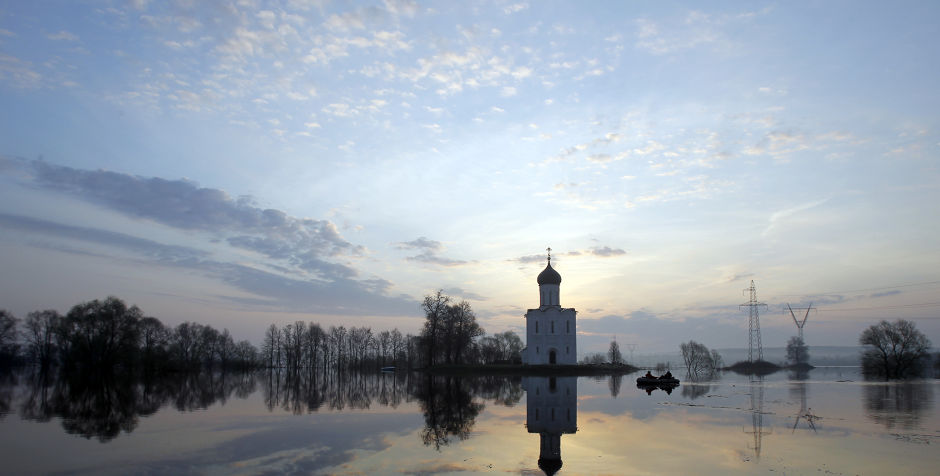Defending the Rights of Christians in Russia
2014 has been a successful year for the Slavic Center for Law & Justice (SCLJ), the ACLJ’s affiliate in Russia. The SCLJ has obtained positive results in many cases. Such victories include the following cases:
Recently, after a seven-year-long battle, the SCLJ won a major victory for the Biblical Center of the Chuvash Republic, a Pentecostal religious organization located in Novocheboksarsky, Chuvash Republic. In 2007 the City of Novocheboksarsky filed suit to strip the Biblical Center of its legal entity status, alleging that the organization was engaged in educational activities without having an appropriate state license. The Biblical Center established a Sunday school for children and a Biblical college for adults teaching the History of Christianity, overview of the Scriptures, Christian Pentecostal theology, evangelism, and discipleship. Through the SCLJ’s persistence and legal expertise, in 2014, the European Court of Human Rights held that the government had violated Article 9 and 11 of the European Convention on Human Rights, which guarantees every individual the freedom of thought, conscious, religion, assembly, and association. As a result, the government was ordered to correct its violations against the Biblical Center.
In another case, the Church of Evangelical Christians, also known as the Sochi Gospel House, fought a long battle with the City of Sochi and the Russian state department for the right of ownership of the building housing the Sochi Gospel House church, which had been reconstructed at the church’s own expense. For two years the City failed to act on the church’s petition for title to the building. With the help of the SCLJ, the church sued the Russian state department for the City’s failure to act on their petition. After several appeals, the Arbitration Court of Krasnodar found that the City’s actions were unlawful and ordered the Russian state department to transfer the rights of ownership of the building to the Sochi Gospel House free of charge.
In 2013, Angela Michelle Stoda, a United States citizen, entered the Russian Federation on a visa for the purpose of pursuing religious work. Stoda was accused of teaching at the Groky Public Library without having a proper work permit – a violation of law punishable by fine and deportation. The SCLJ sought to prove that Ms. Stoda was never employed by the library, was solely a volunteer, and thus, could not be in violation of the law. Through SCLJ efforts, the Russian Constitutional Court clarified that humanitarian work of foreign citizens does not constitute employment without the proper permit, establishing mandatory precedent for all other courts.
The SCLJ also successfully reduced the sentence of six students of the University of Nations who went on a mission trip without obtaining proper visas. The students, stating they were led by God, traveled from Germany to Poland and then from Poland to Belarus. In Belarus, the students purchased train tickets to Russia, believing they would either be denied entry into Russia or issued visas at the border. However, border control regulations do not require trains to stop for visa verification between Belarus and Russia. Once in Russia, the students were arrested for illegally crossing the border. After being sentenced to one year and six months imprisonment, the court ordered that the defendants leave Russia. However, Russia does not allow foreigners to leave the country without a valid visa nor do migration officials issue visas to those who have entered the country illegally. SCLJ worked diligently, and before long, all six of the students were able to leave Russia.
The SCLJ is determined to continue its success throughout 2015, winning additional victories for religious rights and freedoms of individuals and associations in Russia.

